I have a pile of stranded breadboard wires, but need to buy or make more. The red one on the left have a solid metal pin, a molded plastic barrel, and stranded wire, and was purchased at Amazon. Most of the stranded jumper wire sets appear to be more or less identical to that.
The blue one on the right also has a solid metal pin, but the black part seems like heat-shrink tubing.
I'm having a hard time sourcing the metal pins. It is easy enough to find square pins intended for various connector systems, but I don't know how to search for the round ones.
My end goal is to build a small quantity (dozens) of jumpers for my own use. I can fall back on buying more from Amazon, but the molded plastic smells terrible, even after weeks of outgassing.

Edit: Related question. The closest answer to my question is a suggestion for Molex crimp-on pins. Those are close, but not quite what I'm looking for.


